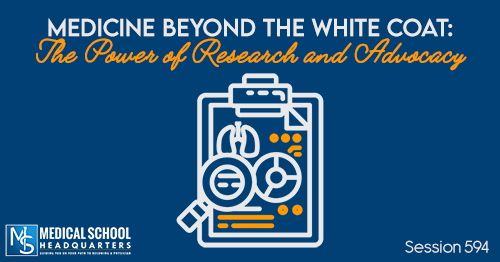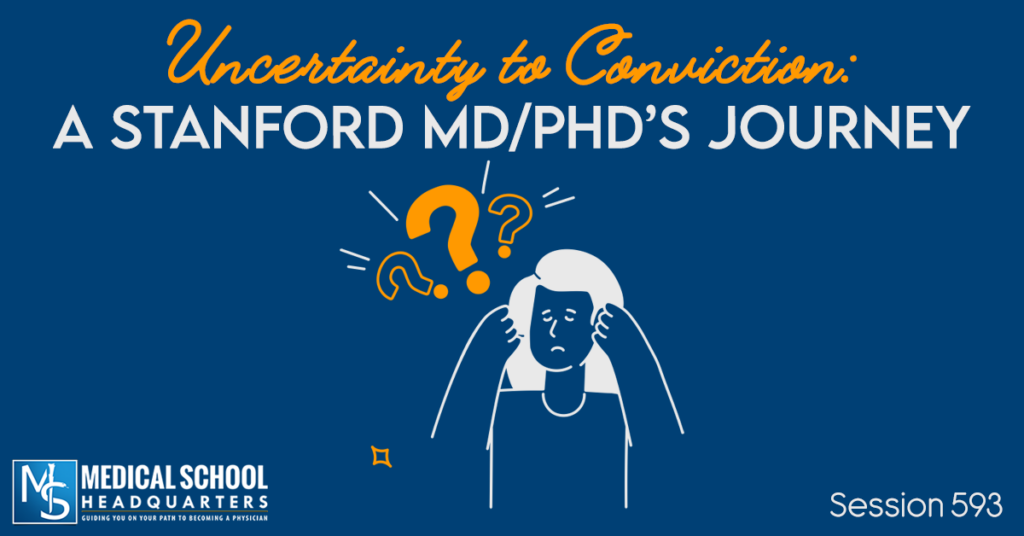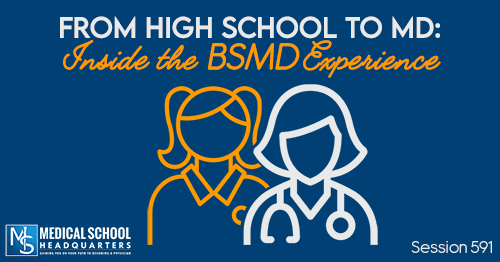When you applied to college, you may have had several deadlines to keep track of that were generally sometime in December or early January, just 8 or 9 months before you would start college. Most medical school decisions are made and released on a rolling basis, and while schools do establish a final deadline for potential waitlist movement, that date can come nearly a year after you originally applied. Neither of these hard dates are the case for medical schools and not knowing about the timing of application submissions and admission committees reviewing applications can really hurt even the best applicants. Don’t plan your application timeline and when you draft your essays based on those timelines. Try to submit everything as early as possible. The reason you want to be as early as possible is that schools have a limited number of interview slots to offer students and even more limited than that are the number of offers of admission they can make.
For the rest of this advice and process to make sense and be useful, you need to understand what rolling admissions mean. All of the application services make applications available to schools in waves, as they are submitted and verified. In order to keep up with the pace and volume of applications, admissions committees will evaluate these stacks of applicants as or near when they receive them instead of trying to evaluate and interview everyone in the winter. That wouldn’t allow committees to evaluate students in the level of detail they use when everyone is spread out over several months. The details of how committees evaluate students before and during deliberation varies from school to school, and getting lost in these details doesn’t really benefit you as a student. Knowing when to expect a response can be helpful, though.
Interview invitations and offers of admission will also be sent out on a first come, first served basis. Schools will typically begin sending interview invitations in late July and August after having time to review applicants in late June and July. Schools will also typically have a date after which they will not send out any more interview invitations. The easiest way to find information on when schools will begin and end offering interviews and acceptances is through the MSAR for MD schools (including TMDSAS), or on their websites, which will work for both MD and DO schools. This structure and schedule of assessing applicants along with the possibility of schools no longer having interview slots open are why you want to submit as strong an application as possible as early as possible.
You can even submit before you get your MCAT score back. If you otherwise feel ready to submit but are taking the MCAT in May or June, and so won’t get your score until June or July, you can submit everything else about your application and then add your MCAT as soon as you get it. In order to minimize the risk that there could be in submitting without a MCAT score, you can apply to just one school, which will allow your application to be processed and verified. Once you get your score back, if you’re comfortable with it, add it to your application, and then officially apply to the rest of your school list. If you do decide to retake, you’ve only applied to and paid for one school.
This strategy can work really well if you actually will have everything ready except for your MCAT score by the beginning or middle of June, but if MCAT prep will keep you from being able to work on your personal statement, you may end up submitting even later, and potentially not until July or August which is definitely not ideal. If you think you’ll have trouble submitting early, either due to the MCAT or essays, it might be good to just plan to apply next cycle. It will be better for your application and mental health if you can really dedicate time to studying, writing your essays, and getting experiences to include in your personal statement and activity descriptions. You’ll never feel like your application is perfect, and there’s no such thing, but taking that time to write multiple drafts of your personal statement and to pre-write secondaries will both keep you from feeling frenzied when they hit your inbox and will improve the overall quality of your application.
If you’re using this strategy, a good way to decrease the delay in having your application reviewed by schools compared to other applicants, is to pre-write your secondaries while waiting for your MCAT score, even if it’s just some quick notes, but ideally, have them as ready to go as possible. Do what you can to be ready to have a quick turn around when you do submit all of your applications.
A useful way to think about what timings are ideal, okay, and late, are to try to think about what number stack of applicants you will be in when the schools review your application. AMCAS generally opens in the beginning of May, and applications can be submitted at the end of May or very beginning of June, though the exact dates vary slightly from year to year. AACOMAS opens around the same time as AMCAS, but applications are released to schools a little earlier since you don’t have to wait until the end of May to hit submit.
The timeline is similar with TMDSAS with the caveat that you can’t submit your application until Texas schools have released spring grades in order to equalize timing between Texas applicants. The key difference between TMDSAS and the other two application services, as far as it relates to the initial application, is that applications are released to medical schools as soon as you hit submit and are verified throughout the process. This also means you have to be on top of submitting transcripts, scores, and letters on time. The benefit is that schools can begin reviewing you immediately, without having to wait for the verification process used by the other services that can take up to a month during peak application season.
The commonality between all of these is that submitting as early as possible is ideal, but you still want to have as polished an application is possible. If a few days or a week are going to actually make a difference in the quality of your application, take that extra time to make everything as well-written as possible and proofread one more time, but you do eventually have to let go and hit submit. It can be really easy to want to just keep editing and going over everything. You will never feel like you’ve done a “perfect” job, but that’s okay. The reason for submitting well before applications are released to schools is two-fold: the verification phase can take a long time, and you want to be in that first or second stack of applicants if at all possible.
AMCAS Deadlines
| 2022 AMCAS Application Guide Available | April 2021 |
| AMCAS Application Opens | May 4, 2021 |
| First Day to Submit AMCAS | May 28, 2021 |
| Applications Begin Releasing to Medical Schools | June 26, 2021 |
| Early Decision Program Deadline | August 2, 2021* |
| Medical School Application Deadlines | September-December** |
- * Early Decision transcripts must be received by August 2.
- ** These deadlines aren’t very useful to consider since you want to apply a few months before these dates.
- You can get even more detailed information on the AMCAS Website.
AACOMAS Deadlines
| AACOMAS Application Opens | May 3, 2021 (Projected) |
| AACOMAS Applications Begin Releasing to Medical Schools | June 15, 2021(Projected) |
| AACOMAS Application Deadlines | October 2021 – April 2022 (Projected) |
TMDSAS Deadlines
| TMDSAS Application Available and Able to Be Submitted | May 3, 2021 (Projected) |
| TMDSAS Applications Released to Schools | June 1, 2021 (Projected) |
| TMDSAS Application Deadlines | October 30, 2021 (Projected) |







